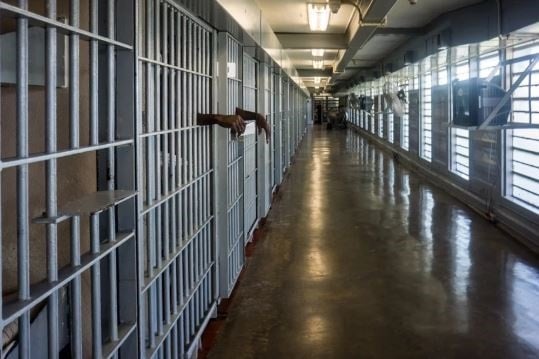
Jade September, a transgender woman who is currently serving a prison sentence inside a correctional facility for men, has won her legal battle for the right to express her gender identity and be respected by the Western Cape prison system and its officials.
The displacement that comes with existing in a world that holds highly its societal norms of gender binaries is likely to be experienced most severely by the transgender and gender diverse person, who is forced into a cycle of violence and insecurity in a world of constraints, akin to imprisonment.
But for an incarcerated transgender woman, additional to surviving the world’s realities is having to be silent in cases of verbal and physical harassment that is experienced in a steel barred cage, because the officials don’t agree with her acts of gender expression that go outside the lines of the normalised binary.
Perhaps it was the words of Judge Chantal Fortuin that challenged this when she said: “A society should be judged not by how it treats its outstanding citizens but by how it treats its criminals.” It’s a daunting thought that ignites conflicting views for many.
Fortuin handed down judgment on September’s case in the Western Cape High Court, on Monday. After 10 months, the court made the landmark ruling that she and other transgender people in South African prisons will be able to express their gender identity.
The decision to remain silent is one that weighs heavy on the backs of so many other inmates across the country who have been placed in a prison that matches their legal gender marker but not their humanity, denying their fundamental constitutional right to dignity and freedom of expression.
Prior to November 30 2017, according to the judgment, September stated that she had not experienced any problems with prison officials and inmates regarding her gender expression and was consequently treated with dignity and respect. She was allowed to grow her nails, wear her hair long, wear make-up, accessories and female underwear, both inside and outside her cell.
She was not permitted to “act as a female in a male prison.”
A turning point was when the regional commissioner of Malmesburg Prison was instructed to confiscate her make-up and to treat her as a male inmate. September stated that after a meeting with him she felt extremely depressed, hopeless and anxious and that the ongoing fight to be herself had become too much – she no longer wanted to live.
This is a reality of having your identity invalidated by a system telling you that you are not worthy of your rights regardless of being a South African citizen and a human being.
What happens to transgender people within a space where they are even further disempowered by those in charge?
Attempts to strong-arm September into fitting the gender binary were consistent – any attempts she made to express her identity as a transgender woman were denied, stripping away any sense of self.
Fortuin ruled that the 35-year-old inmate, who identifies as a trans woman, was violated by the department of correctional services and ordered the department to allow her all her rights to gender expression and the right to self-determination.
Sanja Bornman, an attorney at Lawyers for Human Rights says that this is the first case of its kind for their organisation, but not the last.
“This is why the Gender Equality Programme was set up in 2016, specifically to serve women, girls, and the LGBTIA+ communities of South Africa.”
The ripple effect of this ruling will be felt in society – a sentiment shared by many LGBTIA+ activists and allies upon hearing the judgement.
“The case itself highlights how gender norms do not predate institutions such as prisons, but rather how these institutions create and reinforce binary gender expressions,” says Sihle Motsa, Lesbian, Bisexual and Queer Womxn’s Advocacy specialist from Iranti, an organisation that conducts research that informs policy review and development on gender and sexuality.
“Iranti is aware of other transgender people who have been incarcerated in South Africa and are facing similar dehumanisation in prisons. We are currently working to provide support to a transgender woman currently incarcerated at the Johannesburg Correctional Facility, whose plight has not seen the same level of media attention.”
The landmark ruling is an advancement of transgender rights in South Africa, if the right to gender expression can be upheld in prison there are hopes for an improved society – still a long way to go but the shift within an institution like the prison system is important.
Read: How a kuduro star queered Africa's dance floor
Motsa says: “The legacy of apartheid, and escalating levels of unemployment, poverty and violence very much impact transgender persons. Black transgender people not only have limited access to gender affirming healthcare, they have limited access to employment and experience increased levels of violence and discrimination at the hands of their family members, communities and national institutions.”
“September is very happy, even though this fight took a long time it will make an impact for so many trans people like her who are stuck in this binary system and have been forced to conform to it,” says Bornman.
• This series on LGBTIQ+ life in Africa is made possible through a partnership with The Other Foundation. To learn more about its work, visit theotherfoundation.org




 Publications
Publications
 Partners
Partners









